Kenneth Atchity's Blog, page 64
March 2, 2021
Building Secure Attachment with Dr. Meg Van Deusen
"When we have secure attachment we're more resilient." ~ Dr. Meg Van Deusen
Dr. Meg Van Deusen discusses the importance of building secure attachment in turbulent times, how secure attachment is a foundation for resilience, and how from mindfulness compassion and non-judgement are the basis for secure attachment on PTSD and Beyond Podcast with Dr. Deb Lindh.
"Secure attachment says 'everything is going to be okay' and 'we are there for ourselves no matter what',"
~ Dr. Meg Van Deusen
Dr. Van Deusen's book, Stressed in the U.S. : 12 Tools to Tackle Anxiety, Loneliness, Tech-Addiction and More, looks at how current cultural stressors have increased our stress levels, changed our stress levels, and weakened our resilience to stress. Dr. Van Deusen shares that "every minute provides an opportunity to change your life in some positive way."
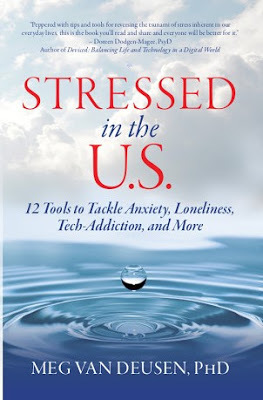
Check out her book Stressed in the US: 12 Tools to
Tackle Anxiety, Loneliness, Tech-Addiction, and more

Marsha Kinder on Ken Atchity's Dreamworks Quarterly
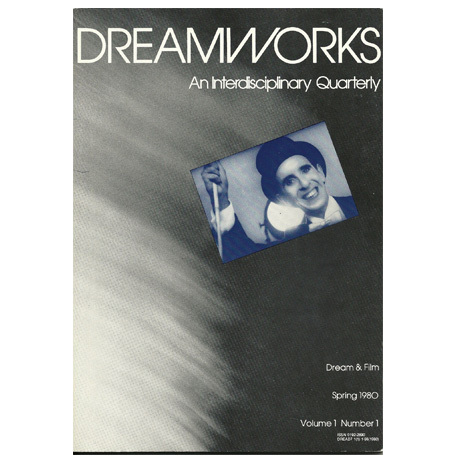
In the late 1970s, Kenneth J. Atchity and I decided to start a new interdisciplinary journal on dreams and their relation to the waking arts. Although we were both teaching at Occidental College in the Department of English and Comparative Literature, we had much broader interests that included—music, painting, sculpture, architecture, performance, and film. Together we composed a letter describing the journal and inviting artists to contribute a brief article describing how they used dreams in their own artistic practice, with concrete examples. We were interested in going beyond a codified dream style like surrealism and exploring a much broader set of relations across the arts.
Much to our astonishment we immediately received dream reports from an impressive array of filmmakers (including Federico Fellini, Orson Welles, Stan Brakhage, Dusan Makavejev, Paul Sharits, Ed Emshwiller, Pat O’Neill, Chick Strand, Bruce Connor), novelists (John Rechy, John Fowles, Ursula K. LeGuin, D.M. Thomas, William Burroughs, Paul Bowles, Alain Robbe-Grillet, Joyce Carol Oates,), and poets (Denise Levertov, W.S. Merwin, Lawrence Ferlinghetti, Howard Nemerov, Gary Snyder)—just to name a few. We quickly assembled an impressive Advisory Board, which included not only artists like John Cage and many others listed above, but also critics, literary scholars, psychologists, anthropologists, and scientists, many of whom contributed ground-breaking essays. Our board also included dream experts like George Devereux and Ann Faraday and two of our nation’s leading neuroscientists working on dreams—William Dement of Stanford’s Sleep Research Center and J. Allan Hobson of Harvard Medical School.
As co-editors, we took turns editing the journal. I edited our first issue, which appeared in Spring 1980 with the focus on Dream & Film, and Kenneth edited the second, on Dream & Poetry. Our journal soon won a Pushcart Prize, an American award that honors the best "poetry, short fiction, essays or literary whatnot" published in the small presses over the previous year. The journal continued for nine years, ending in 1988 with a final issue on Dreams & Adaptations. By then I was a film scholar at USC and we had both moved on to other fields.
We called the journal DREAMWORKS, to put the emphasis on concrete works and to evoke Freud’s dreamwork theory, which helped explain the productive relations between dreams and the waking arts. Yet, we never trademarked the title, which meant there was nothing we could do when a new Hollywood studio later appropriated the name. They stole it from us, but we had also taken it from Freud. So we called the on-line version DREAMWAVES.

drawing sent by Fellini
In the late 1970s, Kenneth J. Atchity and I decided to start a new interdisciplinary journal on dreams and their relation to the waking arts. Although we were both teaching at Occidental College in the Department of English and Comparative Literature, we had much broader interests that included—music, painting, sculpture, architecture, performance, and film. Together we composed a letter describing the journal and inviting artists to contribute a brief article describing how they used dreams in their own artistic practice, with concrete examples. We were interested in going beyond a codified dream style like surrealism and exploring a much broader set of relations across the arts.
Much to our astonishment we immediately received dream reports from an impressive array of filmmakers (including Federico Fellini, Orson Welles, Stan Brakhage, Dusan Makavejev, Paul Sharits, Ed Emshwiller, Pat O’Neill, Chick Strand, Bruce Connor), novelists (John Rechy, John Fowles, Ursula K. LeGuin, D.M. Thomas, William Burroughs, Paul Bowles, Alain Robbe-Grillet, Joyce Carol Oates,), and poets (Denise Levertov, W.S. Merwin, Lawrence Ferlinghetti, Howard Nemerov, Gary Snyder)—just to name a few. We quickly assembled an impressive Advisory Board, which included not only artists like John Cage and many others listed above, but also critics, literary scholars, psychologists, anthropologists, and scientists, many of whom contributed ground-breaking essays. Our board also included dream experts like George Devereux and Ann Faraday and two of our nation’s leading neuroscientists working on dreams—William Dement of Stanford’s Sleep Research Center and J. Allan Hobson of Harvard Medical School.
As co-editors, we took turns editing the journal. I edited our first issue, which appeared in Spring 1980 with the focus on Dream & Film, and Kenneth edited the second, on Dream & Poetry. Our journal soon won a Pushcart Prize, an American award that honors the best "poetry, short fiction, essays or literary whatnot" published in the small presses over the previous year. The journal continued for nine years, ending in 1988 with a final issue on Dreams & Adaptations. By then I was a film scholar at USC and we had both moved on to other fields.
We called the journal DREAMWORKS, to put the emphasis on concrete works and to evoke Freud’s dreamwork theory, which helped explain the productive relations between dreams and the waking arts. Yet, we never trademarked the title, which meant there was nothing we could do when a new Hollywood studio later appropriated the name. They stole it from us, but we had also taken it from Freud. So we called the on-line version DREAMWAVES.
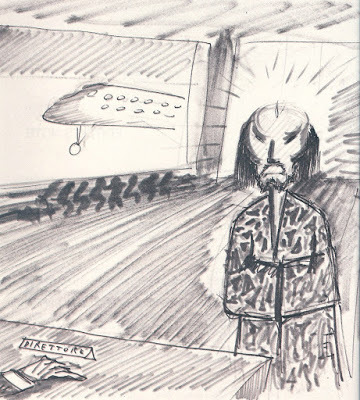

drawing sent by Fellini
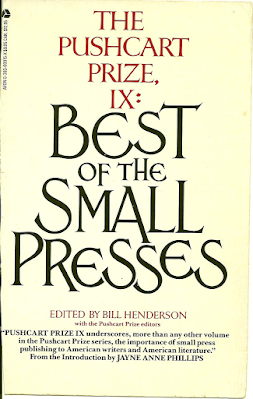

winner of the Pushcart award


February 23, 2021
R.I.P Lawrence Ferlinghetti
Over Sixty years ago, Ferlinghetti, was the principal publisher of an iconoclastic band of writers and poets known as the Beat Generation. Ferlinghetti died on Monday at the age of 101.
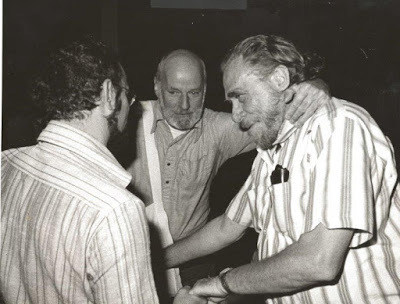
Kenneth Atchity back in the day with Ferlinghetti and Bukowski.
Ferlinghetti contributed "Dreamt Trip" to Ken's Dreamworks Quarterly Magazine Vol 1, No. 2 Dreams and Poetry.




February 22, 2021
Dealing With Your Type-C Personality: Stealing Time
Learn more about One-on-one coaching to help understand a Type-C personality and equip you with practical tools to make yourself more productive and less frustrated with storytelling at http://www.thewriterslifeline.com/

February 19, 2021
Ken's Weekly Book Recommendation: Grizzly Justice by April Christofferson
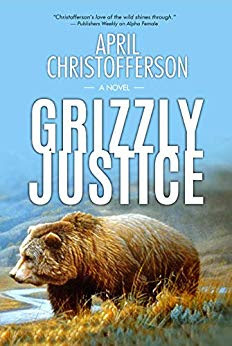
AVAILABLE ON AMAZON
When Yellowstone backcountry ranger Will McCarroll is fired for breaking the rules one time too many, he disappears into the backcountry to continue his decades-long mission of protecting the park’s wildlife. Will is hell bent on saving a wounded grizzly bear whose fate is all but certain: euthanasia.

February 18, 2021
Dr. Meg Van Deusen Author of Stressed in the U.S. on Pen Podcast
Penpodcast.com is a place for authors to share their work and process with the world.

Check out her book Stressed in the US: 12 Tools to
Tackle Anxiety, Loneliness, Tech-Addiction, and more

February 16, 2021
Getting Your Story Straight: Sharpening Your Story
Professional coaching tips to help you figure out point of view, structure, and master all the elements of story. Learn more at The Writer's Lifeline

February 12, 2021
February 11, 2021
Kayoko Mitsumatsu: Former NHK Producer and Founder of Yoga Gives Back on Voices of Japan Podcast with Burke & Ben!
Kayoko Mitsumatsu joins Ben and Burke to share her experiences working as a producer and director at NHK (Japan's national broadcaster) and at the Embassy of Japan in London, and to also share the very encouraging and inspirational story behind the mission of Yoga Gives Back. It is a non-profit organization that Kayoko founded in 2007 that has mobilized the global yoga community to empower over 1400 women and children in India by helping them build sustainable livelihoods through micro loans coordinated by representatives in 30 countries. Apart from those topics, we also discuss some challenges within Japanese society, such as poverty, the country's relatively high suicide rate, and the scarcity of therapy and counseling.
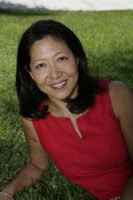

Weekly podcast episodes with half-Japanese/half-American Burke (18 years in Japan) and Ben from England (13 years in Japan) and their guests.

February 10, 2021
Dealing With Your Type-C Creative Mind: Islands
Learn more about One-on-one coaching to help understand a Type-C personality and equip you with practical tools to make yourself more productive and less frustrated with storytelling at http://www.thewriterslifeline.com/





